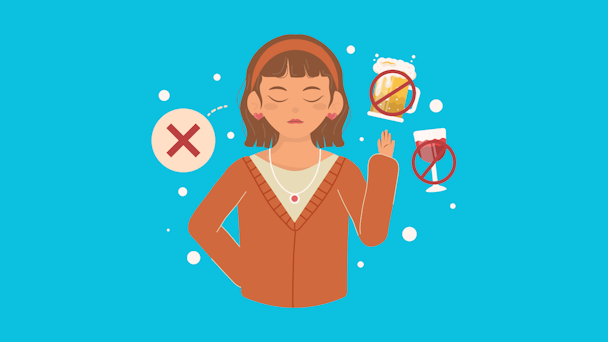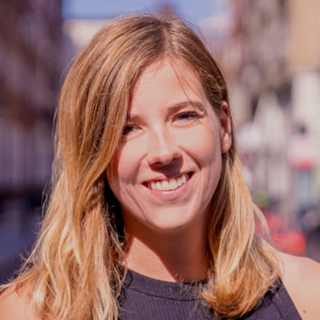It worked on us, but agencies won't retain Gen Z talent with free booze
Talon’s Laurie McAllister reflects on the changing agency attitudes towards alcohol, which we must thank Gen Z for.

There’s been a lot of discussion in recent years of Gen Z drinking less alcohol and what this means for that industry. However, I’m more interested in what this development means for media and marketing – and the opportunity for conversation it can bring.
Yes, it’s a personal concern – at seven years alcohol-free, I’ve become more and more interested in how employers navigate this (rather large) subsection of wellbeing in a world built on media lunches, in-house bars and after-work drinks.
“We work hard, play hard” has long been a maxim on career pages and company LinkedIn, boasting a “dynamic, fast-paced work environment” with the reward of after-work socials and fun dangled like a carrot to the stick of about-average-wages and long working hours.
And for decades, it’s worked. The work is fun. The people are great. The lunches, socials, and industry-dos are major perks.
Advertisement
But as the focus on workplace wellbeing has spread and the post-Covid focus shift towards work-life balance shows no sign of going away, I can’t help but wonder how much longer booze will keep its workplace shine.
We have a generation of people who have never worked in an office; very soon, those coming into work’s managers will never have worked full-time in an office either. The thought of coming into work for Thursday drinks will sound more like a chore than a perk (perhaps it already does!).
More and more workplaces focus on mental health, and many are also giving World Mental Health Day off. WPP does an office-wide closure – and we do one at Talon, too. There is much talk about mental health – awareness raising, problem-solving, therapy! - but very little mention of how it intersects with alcohol.
Advertisement
It’s very easy to ignore the facts until it affects you (speaking from personal experience), but alcohol is a depressant. It can disrupt the balance of neurotransmitters in your brain and affect mood, feelings, thoughts and – critical for workplace wellbeing - behavior. I’ll save the information on its impact on physical health for a later date. For now, the impact alcohol has on employees’ (and everyone’s) wellbeing should be reason enough to start paying attention to how much we center our workplaces and employee engagement around it.
In the last seven years, I have encountered many people who are trying to stop drinking entirely or who are experimenting with mindful drinking. Most of them in their twenties and early thirties – through my role hosting Sober Girl Society’s Virtual Sober Clubs - who are questioning their relationship with alcohol and rejecting (or minimizing its presence in their lives). While I can’t talk for a generation, and at 32, I am most definitely a millennial, the most recent research into drinking habits ties with my lived experience. It shows that 16-to-25-year-olds were the most likely to be teetotal, with 26% not drinking, compared with the least likely generation (55-to-74-year-olds), 15% of whom didn’t drink.
So that’s at least one in four 16-to-25-year-olds who are more likely to be put off by workplace boozing than encouraged. And with increasing documentation of anxiety, 9 million people in the UK signing up for Dry January 2023 and 19% identifying as Sober Curious – it’s fair to say it’s likely off- off-putting at least 1 in 5 of all employees.
Suggested newsletters for you
To me, hybrid working presents us, as an industry, an opportunity to do it differently. And I can see a shift is already happening.
It doesn’t need to be a culture shift towards sobriety to make people feel included, but a shift towards a culture that de-centers alcohol and favors employee engagement instead.
Want to be part of the change? Here are some questions to consider:
-
Is alcohol involved in every social event at your workplace?
-
What could you do to change this?
-
Can you de-centre alcohol from some workplace events?
-
Could you offer options for drinkers and non-drinkers at all events?
The rise in competitive socializing in London and city centers has been a great trend for non-drinkers. Social events hosted while you play crazy golf, shoot clays indoors or throw darts at a dartboard can suit drinkers and non-drinkers alike. Breakfast events, lunches instead of dinners and alcohol-free drinks provided as standard are all ways to make everyone feel included – and they’re happening already, but they can happen more.
Seemingly, small things can make a big difference. When I landed at Talon last April, I asked for alcohol-free drinks to be added to the Thursday bar – that day, they Deliveroo’d some drinks in, and they’re now a recurring buy in the weekly shop. A year and a bit on, we often run out of the tastier alcohol-free beers before the booze.
Making workplaces more inclusive for people who don’t drink won’t just benefit retention of Gen Z’s – although you must admit it was a good hook - it will benefit every employee. Why? Because it will give them choice. If they don’t want to drink because they’re putting their kids to bed, because they’re training for a half marathon, because they don’t want to drink with their manager, because they’re meeting their friends for a late dinner or because they need to drive home from the station – they’ll still feel included and able to socialize.
They’ll get to live their life and do their best work at work without compromising either. And if they’re not drinking because they don’t drink – for religious reasons, for health or because they’ve identified they have a problem with alcohol and now abstain - then an inclusive environment that has uncoupled alcohol with fun will be a heck of a lot better for their wellbeing too.
Laurie McAllister is head of marketing at Talon. She co-chairs the Belong COG - Talon’s DEI committee, too.

